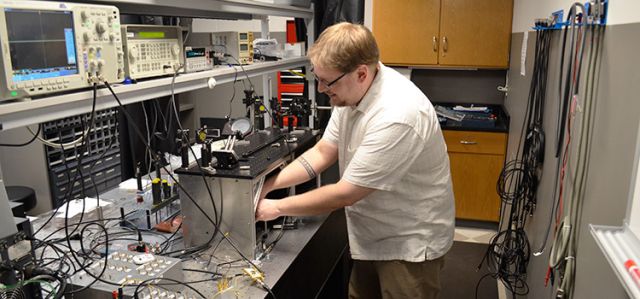Optical Sparse Aperture Imaging
Document Type
Article
Publication Date
2007
Publication Source
Applied Optics
Abstract
The resolution of a conventional diffraction-limited imaging system is proportional to its pupil diameter. A primary goal of sparse aperture imaging is to enhance resolution while minimizing the total light collection area; the latter being desirable, in part, because of the cost of large, monolithic apertures. Performance metrics are defined and used to evaluate several sparse aperture arrays constructed from multiple, identical, circular subapertures. Subaperture piston and∕or tilt effects on image quality are also considered. We selected arrays with compact nonredundant autocorrelations first described by Golay. We vary both the number of subapertures and their relative spacings to arrive at an optimized array. We report the results of an experiment in which we synthesized an image from multiple subaperture pupil fields by masking a large lens with a Golay array. For this experiment we imaged a slant edge feature of an ISO12233 resolution target in order to measure the modulation transfer function. We note the contrast reduction inherent in images formed through sparse aperture arrays and demonstrate the use of a Wiener–Helstrom filter to restore contrast in our experimental images. Finally, we describe a method to synthesize images from multiple subaperture focal plane intensity images using a phase retrieval algorithm to obtain estimates of subaperture pupil fields. Experimental results from synthesizing an image of a point object from multiple subaperture images are presented, and weaknesses of the phase retrieval method for this application are discussed.
Inclusive pages
5933-5943
ISBN/ISSN
1559-128X
Copyright
Copyright © 2007, Optical Society of America
Publisher
Optical Society of America
Volume
46
Issue
23
Peer Reviewed
yes
eCommons Citation
Miller, Nicholas J.; Dierking, Matthew P.; and Duncan, Bradley D., "Optical Sparse Aperture Imaging" (2007). Electro-Optics and Photonics Faculty Publications. 26.
https://ecommons.udayton.edu/eop_fac_pub/26
COinS



